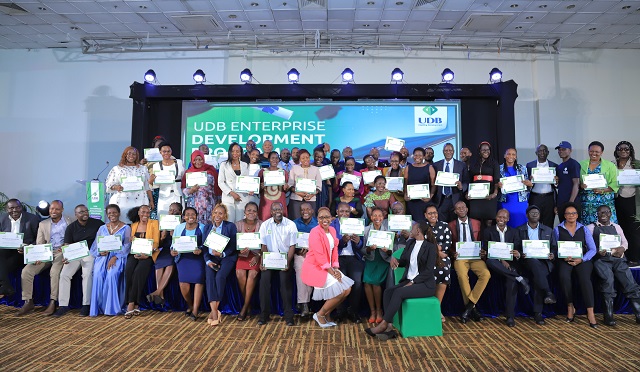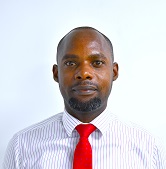
OPINION | Bob Twinomugisha | As we reflect on 62 years of Uganda’s independence, this year’s celebration theme—”A Re- commitment to Secure and Fortify Our Destiny”—is a rallying call to our people to renew our dedication to building an inclusive and prosperous future. The Uganda Development Bank (UDB) has been central to this journey, driving financial inclusion and unlocking economic opportunities for Ugandans through its diverse interventions and tailored financial products.
Financial Inclusion: The Engine of Growth
Financial inclusion is a cornerstone of economic growth, enabling underserved individuals and enterprises to access the financial resources necessary for success. In Uganda, financial inclusion has steadily improved, with the percentage of financially included adults rising from 77% in 2018 to 81% in 2023, as highlighted in the FINSCOPE report 2023. This progress has been driven mainly by formal financial inclusion, with disparities across gender and geography.
For instance, 84% of men are financially included compared to 79% of women, while 87% of urban dwellers are included compared to 78% of rural residents. Despite the tremendous progress in financial inclusion, there is still a significant gap in access to credit, especially for women and youth, who are disproportionately less likely to own assets such as land to use as collateral.
UDB has played a crucial role in this advancement by extending affordable financing, with favorable terms, to stimulate growth in critical sectors such as agriculture, manufacturing, tourism, education, health, and infrastructure. In 2023, UDB’s interventions created and maintained 51,841 jobs, up from 24,013 in 2020, and helped increase project turnover from UGX2.48 trillion in 2020 to UGX5.86 trillion.
The Bank’s SME Kazi Loans—designed to empower Small and Medium-sized Enterprises (SMEs) by providing working capital and trade finance—have been crucial in building resilience among businesses, especially during economic shocks such as the COVID-19 pandemic.
Through this facility, UDB supports enterprises with financing ranging from UGX 50 million to UGX720 million, enabling them to grow, innovate, and contribute to the national economy.
Empowering Women and Youth Entrepreneurs
Women and youth remain central to UDB’s mission of reducing inequalities in access to finance.
UDB’s Women Prosper Loans offer affordable, appropriate financial services for women-owned businesses, helping them thrive. The Women Swift Facility and Women Acceleration Facility, with loan amounts ranging from UGX 100 million to UGX 900 million, empower women to scale up businesses, participate in value chains, and strengthen their communities. UDB’s emphasis on women’s entrepreneurship reshapes local economies by helping women transition from subsistence agriculture to commercial operations.
Youth entrepreneurship is equally supported through the Youth Step-Up Loans, where projects receive up to UGX 540 million in financing. In 2023, UDB approved 199 projects worth UGX 691.8 billion, many of which were youth-led, demonstrating the bank’s commitment to Uganda’s next generation of business leaders. The Youth Agro Facility has been particularly impactful, channeling funds into agriculture, a vital sector for Uganda’s development.
Rural Development: Ensuring No One is Left Behind
Recognizing that Uganda’s rural areas are vital to its economy, UDB has prioritized extending its financial services to rural farmers and small-scale manufacturers. In 2023, UDB disbursed UGX 610 billion across 237 projects, with the Northern Region receiving UGX 27.4 billion to stimulate inclusive growth. One of the critical initiatives driving this rural focus is the Youth Kick Start Facility, which supports startup projects, enabling rural youth to transition from job seekers to active contributors to Uganda’s economic development.
To further strengthen rural financing, UDB introduced Agri-Connect. This digital lending solution facilitates smallholder farmers organized in Village Savings and Loans Associations (VSLAs) to access up to UGX3.5 million micro-loans. In 2023, the pilot phase deployed over UGX1 billion to support 1,460 beneficiaries across 201 VSLAs in the Northern and West Nile regions, boosting essential production activities like purchasing improved seeds, fertilizers, and other critical inputs.
In addition, cooperative financing models and contract farming are enhancing the capacity of rural farmers, giving them better bargaining power, improved market access, and greater profitability. These initiatives create jobs and increase rural productivity, helping UDB’s financed businesses improve their profitability to UGX 869 billion, up from UGX 492 billion in 2022. UDB actively contributes to economic resilience by focusing on rural areas, enhancing productivity, creating jobs, improving livelihoods, and ensuring that rural communities are integrated into the country’s broader socio-economic progress.
A Broader Commitment to National Prosperity
Beyond empowering individuals, UDB’s impact on the national economy is significant. In 2023, the bank’s funded projects generated UGX236 billion in tax contributions to the government, including Corporation Tax and PAYE, marking a substantial increase from UGX160 billion in 2020. This growth highlights UDB’s pivotal role in boosting government revenue. Additionally, UDB facilitated foreign exchange earnings amounting to UGX953 billion, demonstrating its critical contribution to driving Uganda towards greater economic independence.
UDB’s Business Advisory Services provide enterprises with funding and the strategic guidance they need to thrive. These services help businesses improve management practices, financial literacy, and governance, reducing default risk and promoting long-term success.
Looking Ahead
As Uganda looks back at 62 years of defining its future as a nation, UDB reaffirms its commitment to driving Uganda’s socio-economic transformation through promoting sustainable agrifood systems, industrialization, and the service sector. The bank also strives to enhance financial inclusion and economic empowerment of the unbanked and largely financially excluded segments of society, such as women, youth, SMEs, and rural areas. Through its Special Programs—tailored for SMEs, women, and youth—the bank continues to support Uganda’s entrepreneurial spirit and secure a prosperous future for all.
*****
 Bob Twinomugisha is a Senior Economist, Macroeconomics and Trade, with the Uganda Development Bank Ltd.
Bob Twinomugisha is a Senior Economist, Macroeconomics and Trade, with the Uganda Development Bank Ltd.
 The Independent Uganda: You get the Truth we Pay the Price
The Independent Uganda: You get the Truth we Pay the Price



